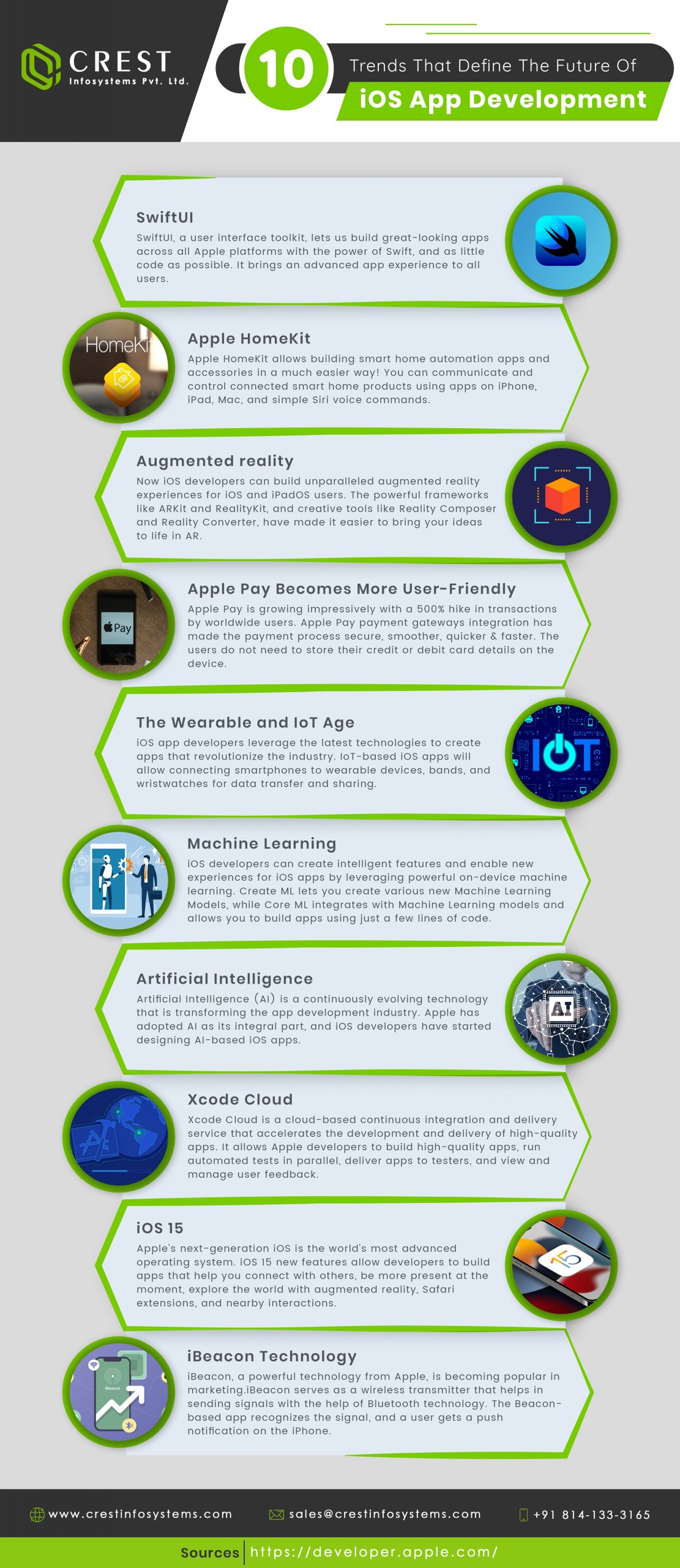Introduction
Over the years, iOS app development has evolved from building simple utilities to creating intelligent, immersive, and highly responsive applications.
As Apple continues to innovate, developers and businesses must stay focused on the road ahead to stay competitive and deliver superior user experiences.
The future of iOS app development is more than new coding languages or sleek designs. It’s about embracing emerging technologies, understanding shifting user expectations, and adapting to the broader digital landscape that Apple continues to shape.
Table of Contents
The Current State of iOS App Development
Before diving into what’s next, we must understand where we are now. iOS app development today revolves around creating high-performance, secure, and intuitive applications within the Apple ecosystem.
Swift has become the go-to programming language, favored for its speed, safety, and modern syntax. Meanwhile, SwiftUI is pushing the boundaries of UI development with its declarative framework, simplifying complex interface designs.
With millions of applications available on the App Store, user expectations for performance, design, and reliability have reached unprecedented levels.
Performance, design, privacy, and seamless integration with devices like Apple Watch and iPad are no longer bonuses; they’re baseline requirements.

Emerging Technologies Shaping the Future
As we look forward, several cutting-edge technologies are setting the stage for a new era in iOS development:
a. Artificial Intelligence & Machine Learning
Apple’s Core ML framework enables apps to offer intelligent features like personalized recommendations, image recognition, and natural language processing, all on-device to maintain user privacy. As models become more powerful, AI will become more integral to the user experience.
b. Augmented Reality (AR)
With tools like ARKit and the introduction of devices like the Apple Vision Pro, developers can now create immersive AR experiences that blend seamlessly with the real world.
The future of iOS app development will likely see widespread AR integration, especially in education, gaming, retail, and healthcare.
c. 5G and Real-Time Processing
The 5G network access rollout opens the door to real-time processing and ultra-fast downloads. This allows developers to create apps that rely on instant data exchange, such as cloud gaming platforms, online healthcare tools, and real-time collaboration apps.
d. Wearables and IoT Integration
Apple’s growing ecosystem, spanning iPhone, Apple Watch, HomePod, and other devices, offers opportunities to build linked experiences.
Thanks to these seamless device integrations, future iOS apps will be more adaptive and aware of the user’s environment and habits.
Read More: Tailored POS Software Solutions for Your Business Needs
Challenges Developers Might Face
While the future is bright, it doesn’t come without challenges:
- Keeping Up With Rapid Changes: Apple frequently updates its SDKs, tools, and guidelines. Developers need to learn and adapt to remain effective constantly.
- Stringent App Store Policies: Apple maintains tight control over the App Store, including rigorous review processes and evolving earning revenue rules. Navigating these can be tricky, especially for new developers or startups.
- High User Expectations: Users expect beautiful, fast, bug-free experiences that integrate effortlessly with other Apple services and devices.
- Privacy Compliance: With features like App Tracking Transparency and increasing global regulations (e.g., GDPR, DMA), developers must prioritize data protection and transparent practices.
- Learning Curve with New Technologies: Tools like SwiftUI, Core ML, and ARKit offer immense potential, but they also come with steep learning curves that require time and practice.
Conclusion
Innovations in AI, AR, 5G, and beyond are shaping a promising future for iOS app development.
However, staying ahead means more than adopting the latest tools—it requires an adaptive mindset, a focus on user needs, and a willingness to meet challenges head-on.
As Apple continues to expand its ecosystem and enhance its technologies, proactive, privacy-conscious, and future-ready developers will thrive in this dynamic landscape.
Whether you’re a solo developer, a startup, or an enterprise, the path forward in iOS development is exciting, challenging, and full of opportunity.


